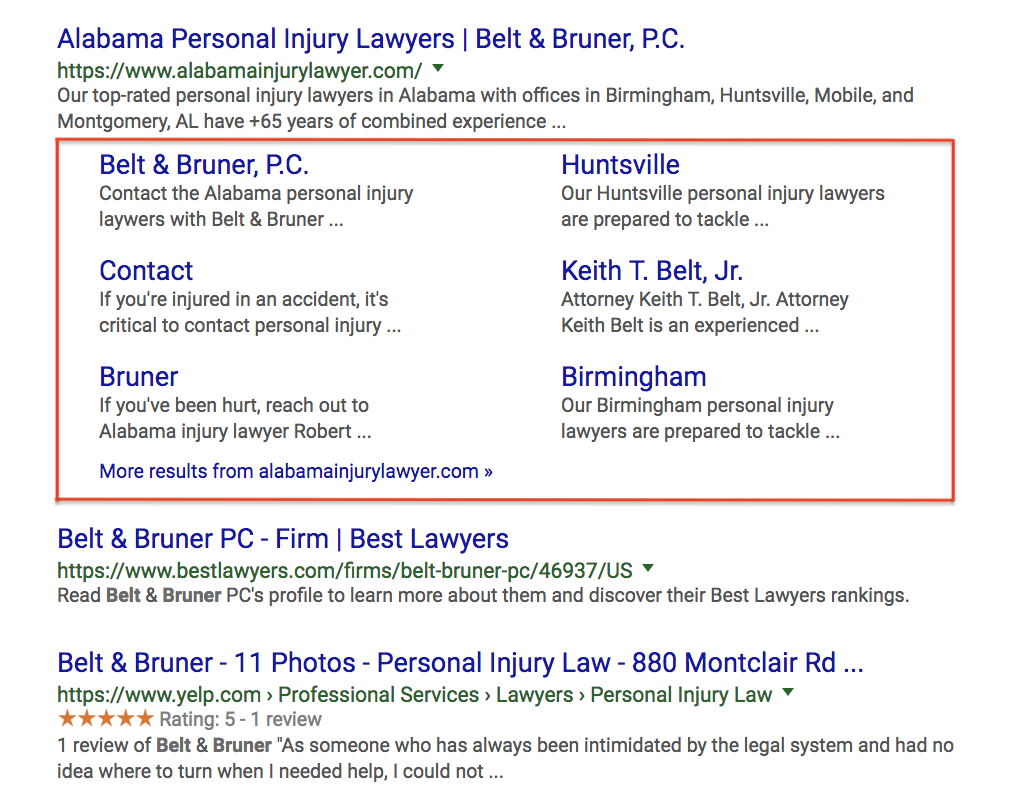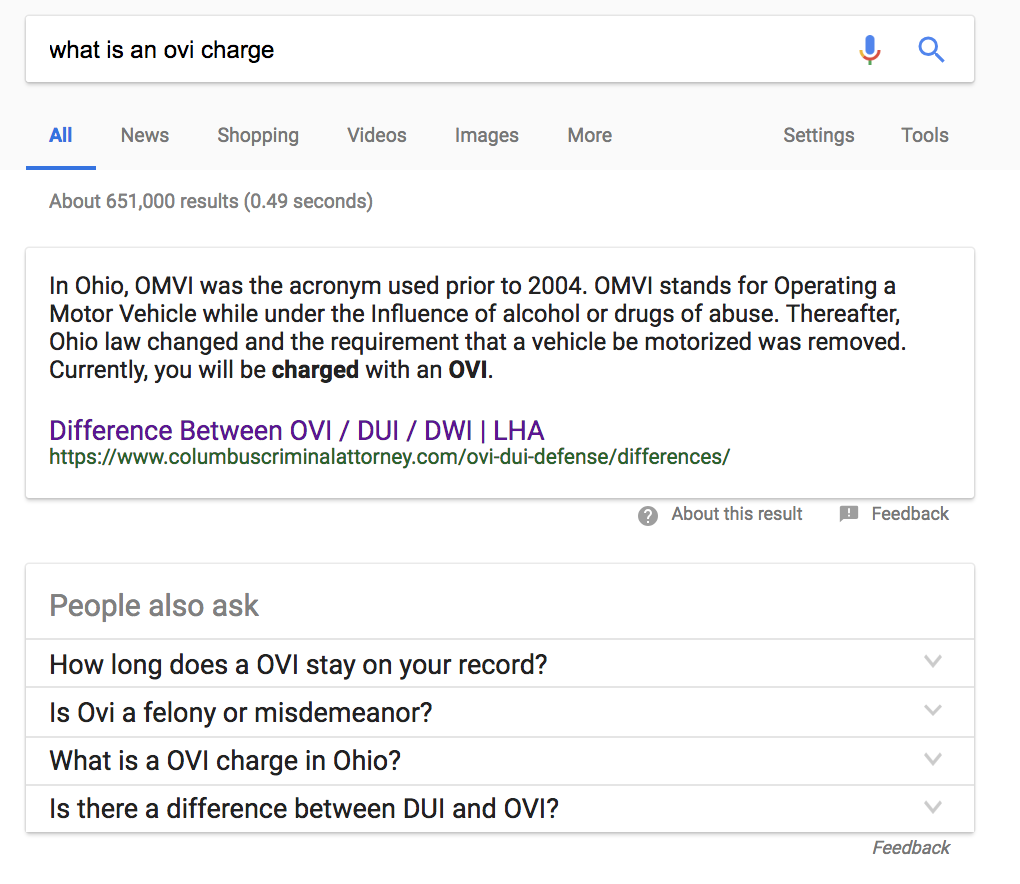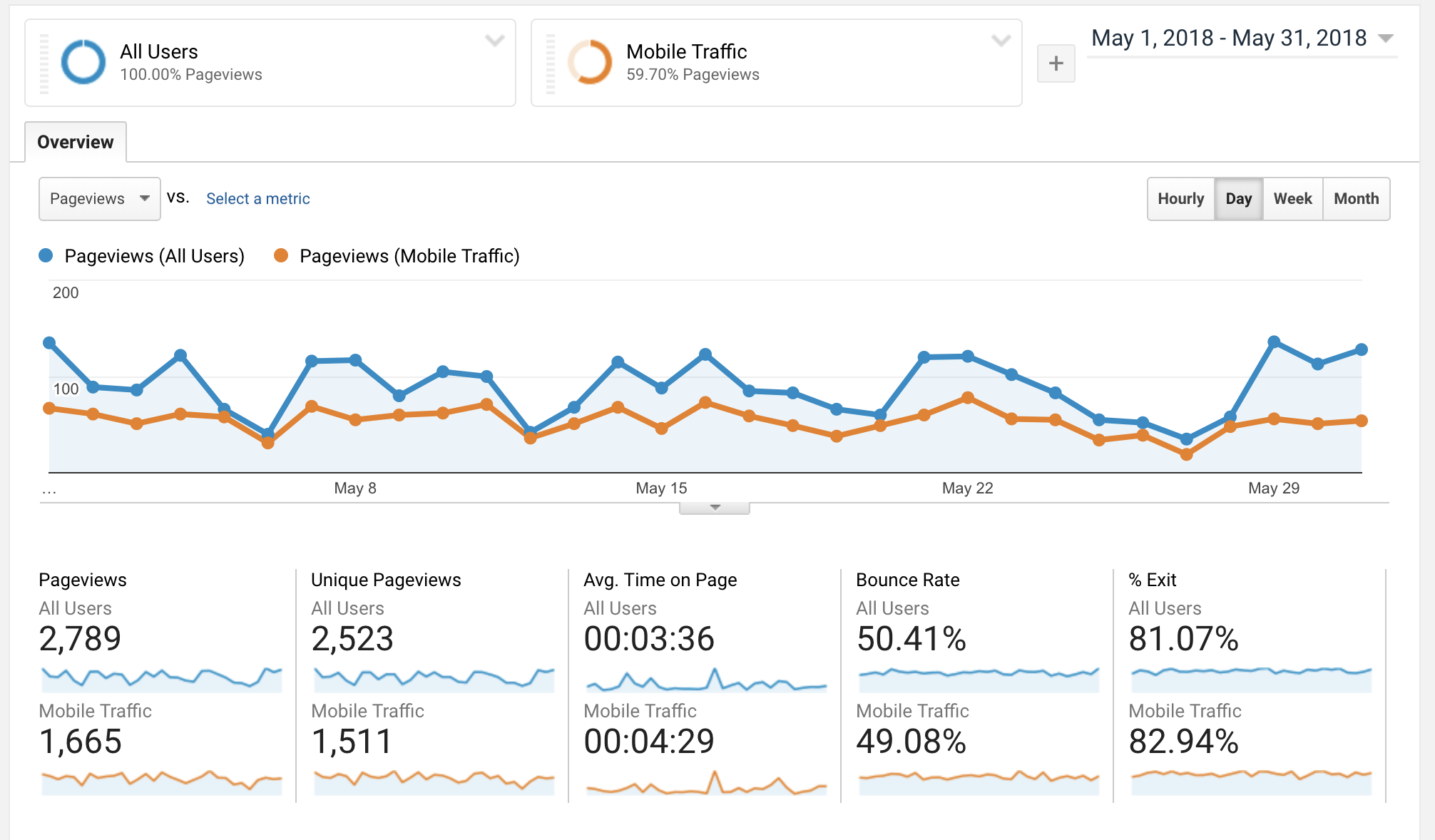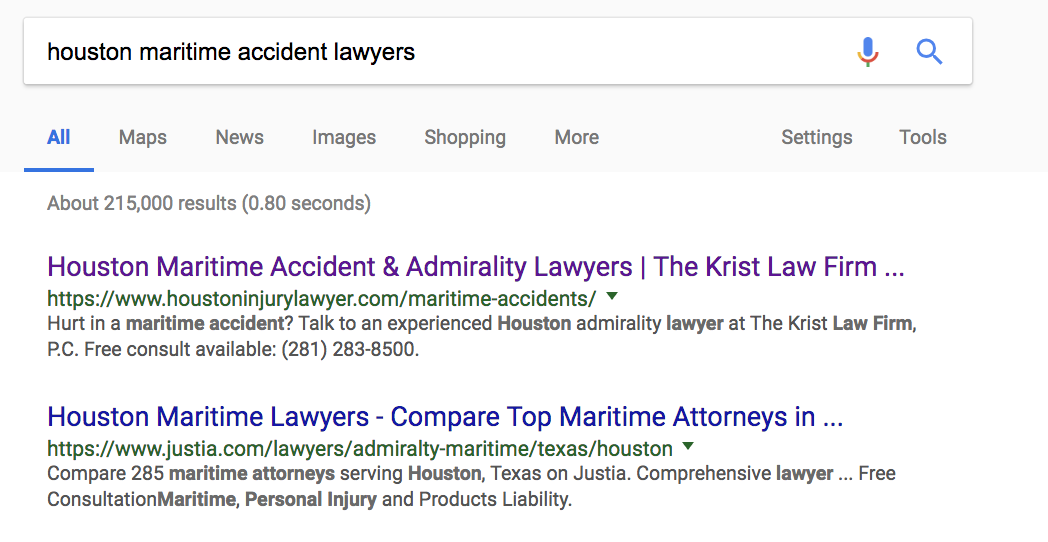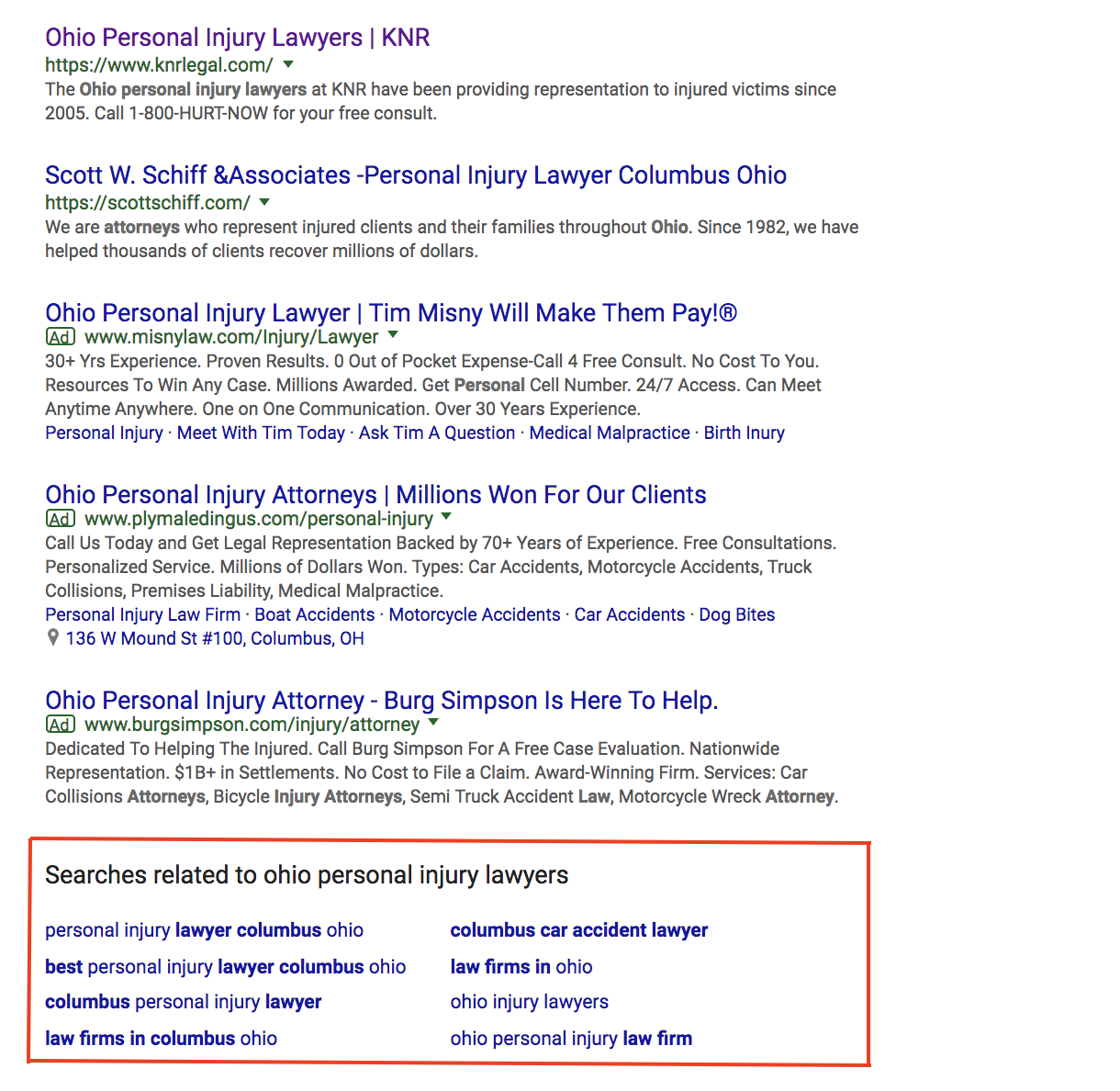SEO

Steps You Can Take for Effective Law Firm Website Optimization
1. Apply for the right awards.
A good reputation speaks volumes for any business. For solo-practicing lawyers and large law firms, law firm website optimization plays a key role in building trust. Having a strong online presence will influence what a potential client may think about you before you even get the chance to talk with them.
There are many factors that can affect your reputation as a lawyer, including rankings and ratings in third-party directories, word-of-mouth recommendations, and the right awards.
In the legal industry, there are never-ending lists of awards that can be handed to any lawyer in exchange for good money. But what are you really paying for? Your average client likely will not notice every award you list on your website, so what are you left with?
Before you sign up for that next award, stop. Stop and think about the value you’re getting from these so-called “vanity” awards, because there are a handful of honors that do have a direct impact on SEO (and even your Avvo ratings). Some accolades that make the investment of “buying” an award worth it include:
- Super Lawyers
- Rising Stars
- Awards from the American Bar Association
- Best Lawyers
- Martindale-Hubbell Preeminent Recognitions
- National Trial Lawyers
The awards listed above work well at either boosting your Avvo ratings or providing you with a great backlink to your website. Depending on your location and area of practice, there are additional awards with SEO value that can ultimately benefit your website’s search visibility.
2. Build those links.
The process taken to increase the number of inbound links to a website is known as link building. To increase the domain authority of your website, quality links pointing back to your web pages are necessary. This is important when you want to increase the search engine rankings for that webpage. The higher your page ranks, the higher your website will appear on search engine results pages (SERPs). Anyone can build a link; however, the quality of that link is a whole other strategy.
If you’re a solo-practicing lawyer or a law firm with a non-existent backlink profile, here are a few ideas that can get your webpage in the right direction:
- Editorial Links – Subscribe to a free PR tool such as HARO, Myblogu, or News Certified, that will match journalists searching for credible sources. Many times, journalists will mention your name if you’re selected to be a credible source for their editorial feature, article, or blog post. When your name is mentioned, it is that much easier to ask that journalist to link back to your website (if they haven’t done so already). There are a few exceptions, but typically these are considered to be good, quality links.
- Directory Links – There is value in a high-quality directory link. Examples include a list of DUI attorneys in a specific area, or a list of lawyers who provide adoption services. The key to remember is to avoid signing up for links that involve submitting your site to resources in exchange for hundreds of free links. Search engines have been designed to penalize a site that participates in link schemes such as these.
- Location-Specific Links – Is your law practice based in Hyder, Alaska? Great! There are quality links you can build that are specific to only your area. Having those will serve your website far better than if someone in Tampa, Florida were to build that exact link. This is one factor of a larger strategy often referred to as local SEO, but the bottom line is this: these are often considered to be high-quality links.
- Award-Related Links – See “fast and simple” SEO #1.
3. Conduct basic keyword research.
If you’re a lawyer with a website, there’s a good chance you have a basic keyword strategy in place. This is assuming you’ve provided content focusing on visitor intent, or the likeliness that your visitors will pick up their phones and give you a call.
Determining what your potential clients are typing into search engines is a crucial part of law firm website optimization. After all, the goal of effective keyword implementation is to ensure your website will receive more traffic than your competitors.
Let’s assume your website already features a list of relevant topics based on your practice, and as a personal injury lawyer in Manhattan, you want more cases involving wrongful death. Now let’s assume you want to rank number one in Google, because who doesn’t?
Sign up for a free Adwords account and take advantage of their Keyword Planner. Punch in the search query “wrongful death lawyer” in New York City and check the results. You should see a list of related search terms along with some additional insight.
At the time of writing this article, “wrongful death attorney” received more searches than “wrongful death lawyer,” as there is more competition for “attorney” than there is for “lawyer” in this location. Therefore, you may want to optimize your webpage for “wrongful death attorney” over “wrongful death lawyer.”
Other pieces of information related to keyword research to consider include:
- What keywords are ranking for your competitors?
- Is your webpage too saturated with keywords?
- Do you have a healthy combination of key terms and long-tail keywords?
4. Develop and maintain focus.
While your website should focus on one category, every page that exists on your site should discuss a single topic. If you’re a criminal defense attorney, for example, providing topics for DUI, theft, drug crimes, and federal crimes on separate pages will serve your site well.
On the other hand, throwing a random page about glass manufacturing (unless you’re a patent lawyer with a focus in the glass manufacturing industry) is going to confuse search engines.
If each page on your site is about a single topic, not only does this make it simple for your visitors to navigate information, but search engines will appreciate content built in this structured way. Imagine a data structure mapping keywords to pages containing them. When a search engine server crawls your webpage, it will be added to a search index based on its content, so keep each page focused on the primary keyword for which you want it to rank – and nothing more.
5. Embed video into your blog posts and interior pages.
Don’t underestimate the power of voice search. According to global leading research and advisory company Gartner, 30% of web browsing will be done without a screen by 2020. According to comScore, 50% of all search will be done by voice technology the same year.
Websites are already being impacted by voice search, and creating video is a great way to deliver on-the-go searches people may be asking.
If you conduct your basic keyword research in a tool like Keyword Planner, you will likely receive top-performing keywords that consist of two or three words. That helps create written content that has a natural focus. However, video delivers a few opportunities that written and image-based content cannot – like the opportunity to take advantage of long-tail keywords.
Video content allows you to replace short key phrases with long-tail keywords. For example, a long-tail keyword may be an entire question like, “can a field sobriety test be used against me,” or “will I lose my license after a DUI?”
These are keywords that won’t typically appear in Keyword Planner. However, they still have search value. Having video is a great way to address these questions for a number of reasons:
- Ordinary dialect has a natural cadence that incorporates longer-tail keywords which may not make sense to elaborate or optimize in written content.
- There’s a growing shift in the way people are searching.
For example, when we’re at a computer screen, it’s likely we’re conditioned to type a query that is more computerized than natural. We may type, “Houston car accident lawyer” behind a screen. If we’re searching this same query, we won’t use this same phrase. Instead, we may phrase a longer voice command, such as “find a car accident lawyer in Houston, Texas.”
If you’re a lawyer who is trying to optimize your website, take advantage of embedding video content into your webpages. Videos work well on FAQ-style pages. When you combine these question-and-answer pages with corresponding video content, not only are you creating the foundation for good content, but you increase your chances of securing you’re a spot at the top of Google’s first page of results. This placement is often referred to as a “featured snippet,” “position zero,” or “answer box,” and it is considered a top achievement in law firm website optimization by SEO professionals today.
6. Get more customer reviews on Google My Business (GMB).
Reviews provide valuable information about your business. Many people will check evaluations they find online in order to determine which lawyer, attorney, or law firm to call for help. Unless you’re a restaurant, it can be a real challenge to receive these reviews. It is even more difficult for lawyers, who often deal with delicate and confidential issues.
The truth remains that a consistent flow of online reviews will help you rank higher in local SERPs. The key is to be proactive about obtaining these positive reviews.
Take my local auto repair shop, for example. After a recent visit, the business owner convinced me to leave a GMB review (when I wouldn’t have otherwise) after the following interaction:
Business Owner: “Are you happy with how I helped you?”
Me: “Yes!”
Business Owner: “That’s great! We’re a local business, and it would be a great help to me if you could write a review about your experience with us on Google.”
Me: “Okay!”
Business Owner: “Great! We have your cell phone number. Do you mind if I send you a link to our GMB review listing? If you’re signed into your Google account, you can easily leave your feedback there.”
Me: “Will do.”
And an hour later, I did.
See how simple this approach was? This business owner encouraged me to leave a review specifically on his GMB listing. It took me less than a few seconds to open the link he texted me and leave a five-star review.
If you’re a lawyer, encourage your clients to do the same. Ask them to leave a review on your GMB, and make it easy for them. There are a few prohibited content policies when it comes to getting reviews on Google, so be mindful how you ask customers for their feedback.
7. Implement LegalService schema.
If you’ve never heard of schema, what I’m about to describe won’t seem exciting until you see how content with schema markup stands a better chance of displaying your website more prominently in a search result. This can, in due course, increase your website’s click-through rate.
Notice how search results with schema markup will appear.
Unless you’re a web developer or a technical SEO, adding schema to your webpage may not be that fast. It is, however, simple enough to accomplish if you know exactly what you’re doing. There is a variety of schema a business can use for marking up information, but as a lawyer, there is specific schema available to use. You should take advantage of this.
Schema is wrapped around content to help search engines, webmasters, and users better understand what information webpage is conveying. When properly applied, this schema markup will help search engines better understand that the information and content on your site is related to a law firm, attorney, or other professional legal service.
To better understand what schema can be wrapped around your content, schema.org has provided a list of LegalService schema that you can use to mark up content on your website. Here are a few examples:
- Address
- Opening Hours
- Fax Number
- Locations
- Logo
- Reviews
- Telephone
- Awards
- Brand
- Name
- URL
It is important to note that Attorney schema has been deprecated and should no longer be in use. Schema.org recommends only using LegalService schema, as it’s more inclusive.
Schema is supported by all major search engines like Google, Bing, and Yahoo. It is always evolving, and new data is constantly being identified by Schema.org, which developers can use to mark up their websites.
8. Improve your chances for featured snippets.
Have you ever asked, “how can I rank number one on Google?” Featured snippets can get you to this top position. This is a major achievement for SEO professionals today. According to Danny Sullivan, a former SEO consultant and current public search liaison for Google,
“People will seek clicks on a brand in the first position for a search on that brand way out of proportion to all other positions.”
In an article for Search Engine Watch, Wayne Cichanski states that the featured snippet in Google secures an average click-through-rate of 32.3%.
There are a few approaches you can take to rank for featured snippets. First, find out what keywords in your area will trigger a featured snippet. This may require in-depth competitive research, expanding your page content to include those key search terms into subtitles, or restructuring your content into organized lists.
Finally, here’s a comprehensive resource by SEMrush and Ghergich & Co. In their joint-research, they conducted a study to determine what keywords triggered text-based, list-based, and table-based snippets. Insights were concluded, like this one:
“…if you try to rank for questions, go for a paragraph featured snippet. If you are trying to rank for prepositions, use a list.”
In my opinion, this is a good resource for obtaining featured snippets. Here are some additional insights from the study:
- 41% of question-based keywords have featured snippets.
- Question-based keywords had a 480% increase in being a featured snippet.
- 70% of featured snippets are HTTPS.
- 89% of the featured snippets have some form of social engagement.
- 95/100 is the average Mobile Friendly Score when checked in Google’s Page Speed application programming interface (API).
- 95.77% of featured snippets are organized into ordered and unordered lists.
- A featured snippet was frequently pulled from a webpage with an average word count of 2000 words.
9. Optimize for mobile search.
At a conference I attended last year in Seattle, a developer at Google explained how his team was required to work one day a week using nothing other than their mobile phones. No desktops were allowed. If Google cares that much about mobile search, so should you. Mobile-friendly websites have been prioritized in previous years, but on March 26 of this year, Google officially announced that they would be rolling out mobile-first indexing.
Mobile-first indexing has been on Postali’s radar for nearly two years, but now that it’s happening, what does this mean for lawyers wanting to optimize their website? In order to stay a top-player in a competitive market, you need to pay close attention to your mobile site. Start with the following:
- Make certain your mobile site is user-friendly. This includes having an award-winning legal site design, good site structure, and optimal page speed for fast-loading content. To check how well your mobile site is performing, run it through this mobile-friendly test tool from Google.
- Verify your site on Search Console. Not only will you be able to fix diagnostic errors on your site, but once you have property-manager access to Search Console, Google will notify you once your site has been indexed based on its mobile version.
- Pay close attention to your local SEO. As a lawyer or law firm, how well your business can be found in a local search is critical. Search engines are always crawling your website, checking that your business listings and local citations are consistent. Being ready for mobile-first indexing does not automatically mean that you will have higher mobile search visibility. Having matching information will encourage higher local visibility.
Mobile searches have been overtaking desktop searches as a preferred way to browse. Check out this recent website data (collected during the month of May) from one of Postali’s managed sites:
When compared to desktop views, nearly 60% of total page views happened on mobile alone.
10. Optimize your URLs.
As previously mentioned, site structure is important for a mobile-friendly site. One way you can achieve a healthy structure is through strategically planned and optimized URLs. There are a few points to remember while creating URLs:
- Use primary keywords – Not only do you want your page to be found by the right people, but crawlers too. That being said, you may want to consider what you want your domain name to be, and make it a transactional keyword that search engines will love.
- Keep your URL short – The shorter you can make your URL, the better. Don’t cut down on length at the risk of losing general meaning or ignoring a logical folder structure. If you’re planning on having a site with a lot of main category pages and even more sub-interior pages, map your URLs sooner rather than later.
- Avoid keyword repetition – Don’t add the same keyword multiple times in a URL string. If you’re three-levels down a page, this could get tricky unless you planned for that expanded content early. Here’s an example of what you don’t want: https://domain.com/dui/dui-lawyer/columbus-dui-laws/columbus-dui-laws-drunk-driving/.
- Keep punctuation and capitalization clean – Keep your URL strings all lower-case and use hyphens, not underscores.
11. Provide relevant user experience.
Do you have great webpage content, but nobody is clicking on it? Writing descriptive and relevant tags can greatly improve your click-through rate (CTR). A simple way to improve your organic CTR is by writing relevant metadata. Consider your title tags and meta descriptions as “free” ad copy in SERPs. Make it effective. For example, take advantage to include calls-to-action like a phone number in your metadata.
What else can you do? Localize your content!
I can’t stress the importance of paying close attention to your local SEO enough, because if you’re a lawyer, location is always going to be important when it comes to being found in a saturated, digital space. In order to achieve a more relevant experience for users, consider including city and county locations in your title tags. This benefits not only users, but local search visibility in SERPs. Both users and search engine algorithms work hand-in-hand because the more users who click on your webpage, the more search engines will be signaled the following message:
“This webpage must provide some decent relevant user experience.”
In return, search engines will bring that webpage higher in SERPs, further enticing users to click to your website.
12. Rely on LSI (Latent Semantic Indexing) keywords.
An LSI keyword is a term that search engines determine is related to a primary keyword. These are keywords that you should be using in your research and on your website, generally because it will help build the topic theme of your page.
When you search a specific topic in Google related to your business, you’ll notice a list of phrases related to your search term at the bottom of the SERPs. These are recommendations other searches have semantically linked to your original query.
These are referred to as LSI keywords, and they can be used to generate ideas for additional keywords you can use to optimize your website. When you select one of those “searches related to…” suggestions, look at what search terms are associated with your previous search in order generate new keyword ideas.
13. Remember your calls to action!
Let’s say you’ve been doing everything right up to this point in terms of SEO. You’ve done your basic keyword research, you’ve been building all the right links, your content is relevant and well-optimized, and your webpages are actually ranking higher in SERPs.
Congratulations! You’re doing something right, but the battle is only half won. If you have visitors clicking on your site but no one is picking up the phone to call, then that’s a problem. What can you do to fix this? Try re-evaluating your calls to action.
An effective call to action should inspire your visitor to do something. Providing multiple ways for visitors to reach you is as important as getting users to click on your website in the first place. This is a separate strategy as it relates to SEO, but it is just as important. This is also where a successful legal content writing and web design comes into play.
Here are a few things to remember when evaluating your calls to action:
- Where is your phone number listed? You should be listing your phone number on every page, above-the-fold, in the headers, and in any prominent location on your website.
- Are you providing multiple ways for visitors to reach you? In addition to phone numbers, provide contact forms and a direct email address where your team can be contacted.
- How effective is your content? How people view your webpage can change depending on its content and wording. This is why it’s also important to consider content in your overall marketing strategy. For example, consider using more imperative verbs or trigger-words like “free consultations,” “call today,” “don’t hesitate,” or “now.”
- How effective is your design? Check that your call to action stands out from the rest of your website’s content. This becomes more psychological, but people will generally be drawn to visual cues and feel encouraged to take steps from it.
There are many content marketing strategies and design techniques that can influence what next steps you want your website visitors to complete, so don’t forget about those calls to action. Be straightforward with what action you want your visitors to take.
14. Respond to reporters’ queries and news sources.
The goal of having a well-maintained and optimized website is to receive quality leads from prospective clients. It is important, however, that you don’t overlook the occasional query a reporter may submit. There are times when a journalist will request to speak to a local attorney in the area. When these opportunities arise, take advantage of them even if you’re not 100% familiar with the case or legal issue they on which want your opinion.
The SEO benefits alone make it worth it. Remember when editorial links were addressed earlier in this article as quality backlinks? Those are some of the best mentions your website can receive.
Even if a journalist doesn’t provide you with a direct link immediately back to your site, there’s no harm in asking. Every news organization has their own policy when it comes to outbound linking, but some will gladly provide a link to your homepage or biography after quoting you for their story.
15. Write In-Depth, Comprehensive Content
Remember that search engines strive to provide users with the most helpful and relevant content available, and extensively long pages allow users to engage with content without reading every, single word on the page. If users did read each word on your webpage, kudos! Google notices user metrics like session duration and bounce rate, so you will be rewarded.
Take this blog post for example. It’s 4,000+ words. Chances are not every word on this page was read. Perhaps you scrolled down the list of 15 tips and skimmed for key phrases and bullet points between each paragraph. If something grabbed your interest, maybe you took the time to read each word in that particular section.
The point is that the longer the content, the greater opportunity there is to have visitors engaged.
On-page SEO needs to be made a priority when you’re optimizing your website, and long content is your opportunity to make it happen. The longer the content is, the more chances you have to use keywords strategically in the form of paragraphs, anchor text, headings, and subheadings. All of this helps search engines better understand the main topics of a long blog post.

Why Trust our Legal Marketing Services?
Whether you’re a large or small law firm or a solo-practicing lawyer, we know your industry and have a talented team that will help you achieve your law firm marketing goals. One day your competitors may be asking themselves, “this lawyer is so ahead of the competition! He’s ranking number one in Google! How did he do it?”
No matter the size of your business, don’t neglect the power of your law firm SEO. At Postali, we have the right resources to help you. Our legal marketing team has degrees in journalism, law, and web design. We fully understand the strict guidelines states have in place regarding what legal information can be published.
For long-term business success, increasing organic search rankings by maintaining an optimized legal website is essential. When you call us, we can provide some clever ideas for your growing business. Give us a call at (614) 556-4618, or reach out online today.





